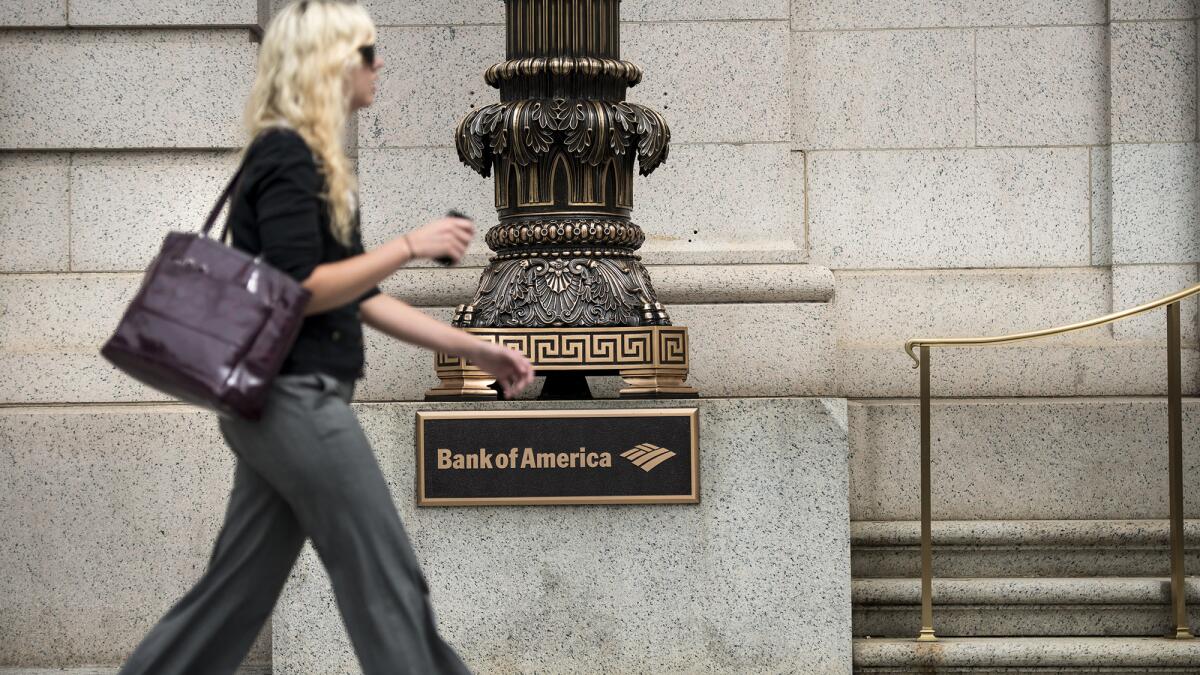In past settlements with big banks, millions of dollars were sent to nonprofits. The Justice Department plans to end that.

The Justice Department will no longer set aside money from fraud settlements with corporate wrongdoers to give to community groups and nonprofits, Atty. Gen. Jeff Sessions said Wednesday, a victory for conservative groups that opposed the Robin Hood-like grants.
Under the Obama administration, some of the billions of dollars that big banks paid in penalties after the 2008 financial crisis were doled out to help legal aid and housing organizations that were working to stave off foreclosures in hard-hit communities.
But the practice was harshly criticized by some Republicans and conservative legal scholars who said the Justice Department was essentially handing out money to Obama administration political allies without going through Congress.
“When the federal government settles a case against a corporate wrongdoer, any settlement funds should go first to the victims and then to the American people — not to bankroll third-party special-interest groups or the political friends of whoever is in power,” Sessions said in a statement Wednesday.
He said the Justice Department would no longer require banks or others accused of fraud to pay groups that weren’t a party to the litigation.
The revised policy will apply only to new court settlements, not to existing cases.
It could dry up a source of funds for community organizations and also affect mitigation payments mandated by environmental settlements, such as the $17 billion paid by Volkswagen to settle claims related to cheating on vehicle emissions tests.
The decision is another sign of the continuing rightward shift of the Justice Department under Sessions. In recent weeks he has ordered federal prosecutors to return to tougher criminal charges for drug offenders and other criminals, and urged them to file more criminal charges against people who illegally enter the country.
The decision Wednesday grew out of a controversy stemming from two court-approved settlements in 2014 for financial fraud leading to the housing crash and bank crisis — $16.6 billion from Bank of America and $7 billion from Citigroup.
Part of the settlements mandated by the Obama-era Justice Department required the banks to pay about $150 million each to community development groups, housing counseling agencies and legal aid.
The agreements were the focus of congressional hearings and attacked by conservative groups. The U.S. Chamber of Commerce’s legal wing, the Institute for Legal Reform, issued a report calling the payments “slush funds.”
The House Judiciary Committee determined that settlements had required $880 million in payments to third parties in less than two years. Rep. Robert W. Goodlatte (R-Va.), the committee chairman, has introduced a bill to outlaw such side payments.
The Obama administration defended the grants as a way to channel resources to help communities and groups hardest hit by the housing bubble and financial crisis.
Nearly $400 million from the Bank of America settlement went to a group called Interest on Lawyers Trust Accounts, which distributes funds to legal aid groups across the country.
“If you can help prevent foreclosure, what you do is provide economic stability to the community, which is exactly what the Bank of America dollars were supposed to do,” said Judith Baker, president of the national association of the lawyers’ trust groups. “If you can have a lawyer, you can really help stabilize the situation and get a positive outcome.”
Twitter: @jtanfani
ALSO
Contractor is charged with leaking top-secret document about Russian hacking
Another 300 prosecutors would go after gangs, gun criminals and border crossers
Trump administration appears to ease up on its threat against ‘sanctuary cities’
More to Read
Get the L.A. Times Politics newsletter
Deeply reported insights into legislation, politics and policy from Sacramento, Washington and beyond. In your inbox three times per week.
You may occasionally receive promotional content from the Los Angeles Times.







